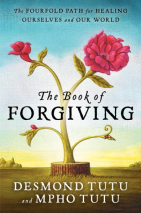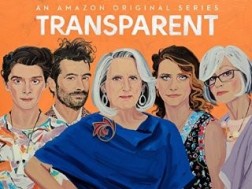
As Rosh Hashana and Yom Kippur approach, I am in the midst of my annual process of asking forgiveness to everyone I have knowingly wronged in the last year. During this time, Jews atone for our wrong-doings. We are tasked with not only asking for forgiveness, but making things right with those we have wronged.
This year, I’m realizing that I have been missing out on so many aspects of forgiving. What about the forgiveness I am not aware I need? I need to learn to forgive us and to invite others to call me out on the ways I have inflicted harm on them.
This year has been particularly full of violence and hateful rhetoric in the U.S. Divides between people of differing political and ideological camps are growing. It feels difficult to engage in conversation with family members, friends, neighbors, and co-workers. How can we acknowledge or even forgive the ways in which we hurt each other?
I know I have hurt a number of people by standing up and speaking out against oppression. This year, I have tried to be simultaneously pointed and strong as well as humble and generous as I confront others. I surely have not succeeded as well as I could have. It is not enough to be righteous or to fight for a righteous cause. I want to create social justice, not cause harm. Calling someone out on their sexism, racism, ableism, etc. is always going to cause them pain.
 My vantage point changed as I started reading The Book of Forgiving by Desmond and Mpho Tutu. They point out that everyone needs to forgive as well as to be forgiven. I wonder who I have unknowingly wronged. I realize that my job before Yom Kippur is not only to ask for forgiveness, but also to forgive. Forgiveness is not forgetting. I can still hold others accountable and forgive them.
My vantage point changed as I started reading The Book of Forgiving by Desmond and Mpho Tutu. They point out that everyone needs to forgive as well as to be forgiven. I wonder who I have unknowingly wronged. I realize that my job before Yom Kippur is not only to ask for forgiveness, but also to forgive. Forgiveness is not forgetting. I can still hold others accountable and forgive them.
Binge watching Transparent, I’ve been thinking about the overlap between Judaism, spiritual journeys, and feminism. As in the show, these ideas are immersed and interconnected. Season 2 was themed on the high holidays, and season 3 is themed on Passover. There was atonement and then liberation. A light went off for me while I marinated on the show. In order to achieve liberation, there must first be atonement.

As a feminist, I am increasingly aware of the ways in which other’s speech and actions hurt me and other women. I used to think that this awareness gave me righteousness and that through seeing other’s wrongs, I would become stronger. There is power in anger.
Now, I believe that as a feminist, my role is to see past my hurt and find the humanity even in those that belittle, harass, subjugate, and violate women. Forgiveness does not mean forgetting or excusing. I can still hold people accountable and demand change while forgiving.
In this new year, I want to be more open to the inevitable fact that I too need to ask for forgiveness. Ijeoma Oluo writes about acknowledging one’s wrongs. I want others to be able to call me out when I am wrong. I cannot expect others to accept their failings if I cannot do the same. I cannot expect myself to have overcome the numerous ways I have been socialized to reproduce inequality. I cannot expect others to if I do not. We must all atone for the ways in which we participate in injustice in order to create a more just world.
This high holiday season, I want not only to be forgiven: I want people to call me out when I need to ask for forgiveness. I want to forgive those who have hurt me and other women.
 Debra Guckenheimer is a Research Associate at the Center for the Advancement of Women’s Leadership at Stanford University. Previously, she was a Research Associate at the Hadassah Brandeis Institute at Brandeis University, a Visiting Assistant Professor at Bowdoin College, and a Postdoctoral Research Associate with the NSF ADVANCE Institutional Transformation Program at Northeastern University. She is an expert on social change efforts to reduce inequalities based on race, class, gender, sexuality, and disability. She has appeared in USA Today and on public radio. Her work has appeared in the Women’s Studies: An Interdisciplinary Journal, Embrace Race, The Feminist Wire, The Handbook of Positive Organizational Scholarship, and Doing Diversity in Higher Education. She has a Ph.D. in Sociology from the University of California, Santa Barbara and a B.A. in Politics from Oberlin College.
Debra Guckenheimer is a Research Associate at the Center for the Advancement of Women’s Leadership at Stanford University. Previously, she was a Research Associate at the Hadassah Brandeis Institute at Brandeis University, a Visiting Assistant Professor at Bowdoin College, and a Postdoctoral Research Associate with the NSF ADVANCE Institutional Transformation Program at Northeastern University. She is an expert on social change efforts to reduce inequalities based on race, class, gender, sexuality, and disability. She has appeared in USA Today and on public radio. Her work has appeared in the Women’s Studies: An Interdisciplinary Journal, Embrace Race, The Feminist Wire, The Handbook of Positive Organizational Scholarship, and Doing Diversity in Higher Education. She has a Ph.D. in Sociology from the University of California, Santa Barbara and a B.A. in Politics from Oberlin College.
Discover more from Feminism and Religion
Subscribe to get the latest posts sent to your email.


Thank you, Debra, for this excellent essay. You write, “I believe that as a feminist, my role is to see past my hurt and find the humanity even in those that belittle, harass, subjugate, and violate women….” Yes, yes, yes…so essential to the work of creating a just and peaceful society.
LikeLike
Thanks Esther!
LikeLike
Such a thorny issue. Thank you for addressing it. So much of what passes for forgiveness in our culture equates to minimizing the harm done – “forgive and forget.” This is especially true for women who are taught self-abnegation as part of our acculturation. No wonder people bristle against it. Learning that there is a difference between forgiveness and reconciliation has been key in my case, as well as discerning appropriate boundaries with people who cause harm.
LikeLike
It would be wonderful–almost heavenly–if we had a just world. Thanks for writing this.
LikeLike
This morning I read: “To know others is intelligence; to know oneself is wisdom”. May the observance of these Holy Days fill you with wisdom and peace.
I’ve come to the conclusion – in my late 70’s! (slow learner) that relationships are a life long adventure. Thank you for sharing this part of your journey with us.
LikeLike
Thanks, Debra. Do your best, that’s all you can do, and yes, be honest and open regards the hurt. But then seeing past the hurt, as you say, thinking positively also, that way of life is very much needed in this world of ours too.
LikeLike
Thank you Debra. It’s a tricky issue which tasks us with getting into the muck and grime of it. Which reminds me that the lotus arises from the mud …
LikeLike
\\ Forgiveness // is now a ‘hot topic,’ in large part secondary to the RCC promoting the idea in hopes of re-filling the pews despite the pedophile scandal.
\\ Forgiveness // has also become a hot topic within my immediate family, for the one who was forgiven of a gross betrayal turned and alienated my children from me, which retracted the forgiveness. Because the initial betrayal was not addressed during the children’s childhood (to protect them turns out to be an erroneous belief ), the now-adults don’t/won’t believe it is the truth. And, when a hint of acceptance of the truth arises, the subject of forgiveness always ensue .
What is always neglected when the subject of \\ Forgiveness // comes up, is the harm that happened to the sub-conscious. The conscious process of forgiveness has no impact on the sub-conscious.
Personally, any sexual desire for the betrayer was turned OFF, in fact the betrayer produced repulsive feelings even while I was role-playing desire. A marriage cannot survive intact, long-term, a wounded subconscious, what the subconscious manifests in physical response, or lack there of. Especially without an overt apology for the doer of harm done, which is too often not forthcoming from those with male entitlement beliefs (pride in image portrayed), healing the sub-conscious is likely not possible. In the most severe betrayals, i.e. pedophile victims, there is no hope that the sub-conscious will ever be healed.
In other words: There are MANY living with THE IMAGE that they can’t forgive; which isn’t the issue of their conundrum, they DID THE WORK and forgave; these should NOT be considered less godly because the outcome isn’t what the community wanted.
And, what should be done with those who harm others in-the-knowing-comfort that more harm is done if they aren’t forgiven, in-the-knowing-comfort that the victim must forgive or else be harmed more? There are many socio-paths to psycho-paths out and about who are thriving IN this mind-set.
LikeLike